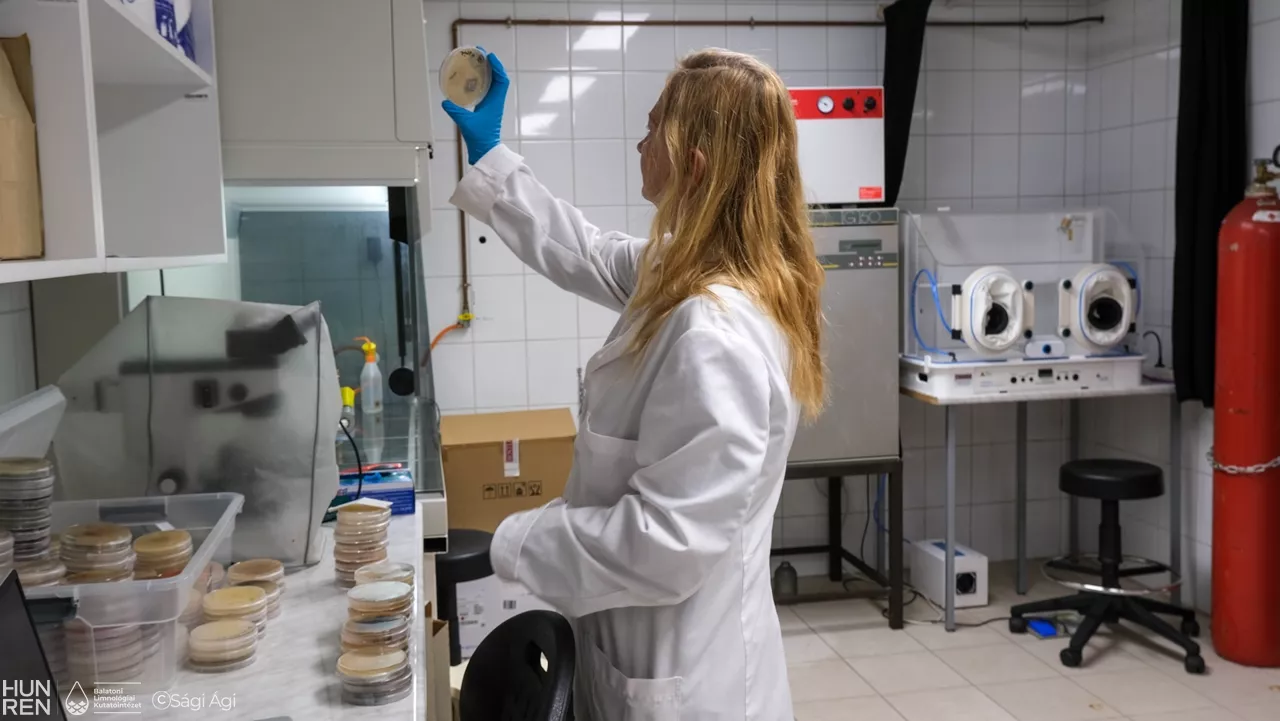
New microbiological research has been initiated at the HUN-REN Balaton Limnological Research Institute (HUN-REN BLRI) with the aim of understanding the functioning of aquatic ecosystems. The research is enabled by a modern molecular biological and microbiological laboratory established with the support of the HUN-REN Hungarian Research Network. In the new laboratory, researchers can study the network of relationships between water, sediment, and microorganisms.
In recent years, several laboratories at HUN-REN BLRI have been renewed. One of the most significant developments was the establishment of a modern molecular biological and microbiological laboratory, equipped with advanced facilities including a DG250 anaerobic workstation, which enables the study of microorganisms in oxygen-free environments. This laboratory provides the opportunity to investigate the network of relationships among water, sediment, and microorganisms, with a particular focus on understanding the intensity of metabolic processes.
The researchers aim to understand the functioning of aquatic ecosystems, with a specific focus on the role of microbial communities. The microbiological research initiated at HUN-REN BLRI places particular emphasis on the study of filamentous fungal communities in the aquatic environment, representing a unique field of research in Hungary. Currently, the researchers are concentrating on discovering the fungal communities associated with aquatic plants and their surroundings. They have already isolated dozens of filamentous fungi, primarily from samples of aquatic plants such as water chestnut, water lilies, and hornworts. In the near future, they plan to investigate the microbial decomposition of these plants.
The development was realised under the project titled "Limnological research of the Balaton coastal zone", supported by HUN-REN.